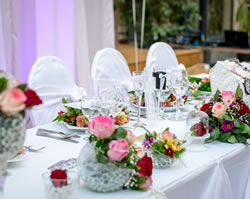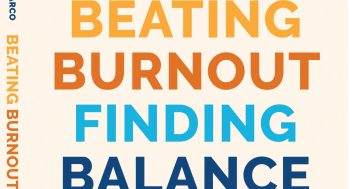Charlotte Cowles* says splurging on a wedding or any period of unusual heavy spending can see your spending urges spiral out of control.
 “I’m 32 and recently got married.
“I’m 32 and recently got married.
For most of my life, I’ve been pretty responsible with money. But after planning our wedding, I feel like I’ve gone totally off the rails.
Once I started signing cheques for thousands of dollars, it became a slippery slope.
I’ve been shopping a lot more, because what’s a $100 shirt compared with the $15,000 we paid for our wedding venue?
I used to be more mindful of little expenses, because I know they can add up, but now I just can’t bring myself to care as much.
I’ve tried to cut back, but I just don’t have the discipline that I used to.”
Welcome to the alternative reality of weddings.
It’s basically a fun-house mirror for money, where price tags get so distorted it’s easy to forget what’s reasonable.
Like you, I went through a weird recalibration after my wedding was over.
For months, the whole world had urged me to spend gobs of money to look and feel as close to perfect as possible because “you only get to do it once!” and, “the pictures!”.
While this treat-yourself vortex was surreal and stressful, it was also fun, in a dizzying and unhinged sort of way.
I’d buy a wedding dress and shoes … and also this random bathrobe and bathing suit, because what’s another $150?
When I finally came back down to earth, I was significantly poorer, horrified that I’d been such a sucker for the wedding-industrial complex, and a little sad that I couldn’t rationalise my reckless credit-card swiping anymore (not that I ever really could).
This experience is common, not just for newlyweds but also for anyone who goes through a period of heavy spending outside their usual scope.
A similar thing happened when I recently moved house and bought a new sofa and rug — suddenly I was buying new cups, plates, silverware, and pillows, too.
Academics don’t appear to have a name for this particular spending phenomenon, but it’s similar to the “What the Hell Effect”, which is used in the context of willpower and eating.
It describes the human tendency to indulge, feel bad about it, and then keep going because, well, what the hell — you’ve blown it already, so why not finish the whole pie?
Research has found this effect is exacerbated by guilt and self-criticism.
In one (rather sad) study, female university students were divided into three different groups and given bowls of lollies.
Before the sweets appeared, the first group was fed a doughnut and given a reassuring message about self-compassion; the second group was fed a doughnut but received no message; and the third group got neither.
The group which ate the doughnut but wasn’t encouraged to feel self-compassionate went on to consume significantly more lollies than the two other groups, suggesting that the doughnut (and resulting self-criticism) was a trigger.
Meanwhile, a different study found that dieters were more likely than non-dieters to overeat cookies after they were served a large slice of pizza.
The takeaway: A restrictive, shameful mentality sets you up to go hog wild once you’ve strayed off track, but a more flexible and forgiving mindset can help you get back in the saddle more quickly.
To apply this to money: Try not to lump your current overspending in with the gigantic cost of your wedding.
You might think, I can’t believe I bought that thing on TOP of what I’ve spent this year.
Instead, recognise that what’s past is past.
Take a breath, resist the urge to berate yourself, and remember that your wedding was an isolated and unusual situation, not the beginning of a scary pattern that you lack the fortitude to reverse.
Research shows that confidence (or “self-efficacy”) is half the battle in following a budget; don’t let one period of excessive spending knock yours.
Another part of your problem is that you now have a much higher benchmark for what “a lot” of money looks like, says Carey Morewedge, a Professor of Marketing at Boston University.
“People tend to think about expenses in a relative fashion rather than absolute fashion,” he explains.
For example, say you’re shopping for winter boots and you find one pair for $125 and another pair for $900.
“Normally, that would seem like a huge price difference,” he says.
“But if you’ve recently paid $15,000 for a wedding venue, the relative difference between $125 and $900 starts to seem more negligible.”
This is often referred to as a skewed “comparison standard,” and it explains your newfound carelessness with smaller expenses — next to $15K, they don’t seem to matter, even though they still add up the way they always did.
Lowering your financial benchmarks isn’t easy, but it can be done.
“Once people become accustomed to higher spending, they typically shift their reference point so that it becomes the new normal,” says Morewedge.
“There’s no quick fix for that, but I would suggest a clean break.”
“Maybe take a few months of fiscal sobriety — make a rule that you won’t buy anything new, and reset your habits.”
One other tactic might be helpful: Try going cash-only for a while.
Studies have found that people who stop using credit cards become more conscious of the value of their purchases, because it increases the “pain of paying”.
There’s nothing like parting with physical dollar bills to make you reflect on exactly how much something costs and whether it’s worth it.
Don’t approach these measures as punitive.
The point is to prove to yourself that you can be just as happy with less — which is objectively true.
Most humans have a baseline level of happiness that they return to regardless of positive or negative events in their lives.
My guess is that once you return to that level, and a budget that’s sustainable, you’ll feel a lot more freedom in general.
* Charlotte Cowles is a columnist at The Cut. She tweets at @charlottecowles.
This article first appeared at www.thecut.com.











